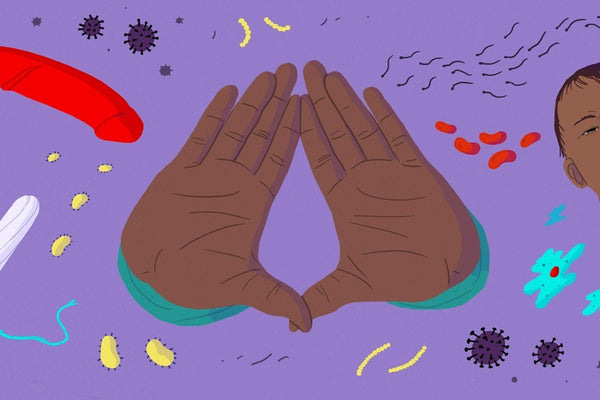Everything You Ever Wanted to Know About Bacterial Vaginosis

Bacterial vaginosis is the most common vaginal infection in women ages 15-44 (nearly one-third of U.S. women of reproductive age have it at any given time), but unlike many super common health conditions we face as women, maybe you haven’t heard of BV? Let’s explore.
What is it?
Bacterial Vaginosis or BV is an imbalance of “good” and “harmful” bacteria normally found in a woman’s vagina. Any woman can get BV and having it can increase your chance of getting other serious diseases.
How do you get it?
Vaginal pH is crucial in keeping your vagina happy and healthy, and when the scales are tipped (aka more “harmful” bacteria is present), conditions like BV can occur. Many things can contribute to offsetting the bacteria in your vagina (like douching, don’t douche), which can lead to BV.
What about sex?
While it’s not classified as an STD, sex with someone new and having multiple partners can contribute to getting BV. Mostly how its developed is still a big mystery.
Symptoms?
You might not have any symptoms, but if you do they may include:
- A strong fish-like odor (especially after sex)
- A thin white or gray vaginal discharge
- Pain, itching, or burning in (and outside of) the vagina
- Burning when peeing
So what do you do?
With uncomfortable discharge and odors all you want is to get rid of them, but with BV feminine sprays, soaps, and wipes will not fix the problem. They can actually make it worse. Sometimes Bacteria Vaginosis will heal on its own, but a visit to the doctor will help you on your way to recovering. The standard treatment is antibiotics, but unfortunately BV can keep coming back. It can even occur in pregnant women with extreme risks.
If untreated, BV can increase your risks of getting an STD, as well as pelvic inflammatory disease, and other vaginal and uterine infections, so if you have concerns, it’s advisable to speak with your doctor.
Photo courtesy of The Atlantic
0 comments